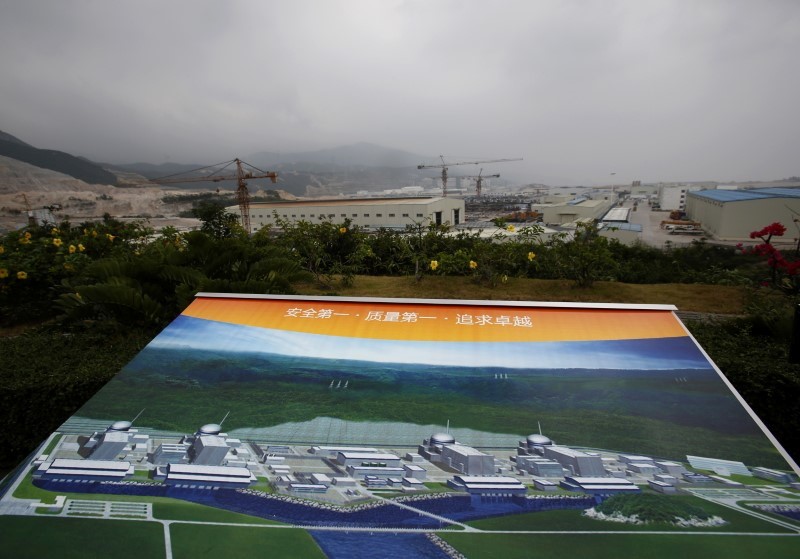The emergence of problems in a new-generation nuclear reactor in China threatens to undermine efforts by its French designer to sell it elsewhere, and could hurt Beijing’s nuclear industry
(AF) Energy giant Électricité de France and the Chinese government have sought to ease concerns about a gas build-up at the Taishan nuclear power plant in southern Guangdong province after a CNN report of a potential leak at the site.
Chinese nuclear safety and environmental authorities said on Wednesday there has been an increase in radioactivity in one of the two power units due to five damaged fuel rods, but that it did not warrant concern.
However, this is just the latest snag to hit EDF’s much-vaunted European pressurised reactor (EPR).
In 2018, the Taishan power station became the first site worldwide to use the pressurised water design, which has been subject to years of delays in similar projects in Britain, France and Finland.
A second EPR reactor was launched at Taishan a year later. The facility is partly owned by EDF along with state-owned China General Nuclear Power Group, the majority stakeholder and operator of the plant.
EDF said this week it was first informed about the problem with the fuel rods in October, but only learned about the gas build-up on Saturday, according to EDF.
‘KNOWN PHENOMENON’
“EDF has been informed of the increase in the concentration of certain noble gases in the primary circuit of reactor number one of the Taishan nuclear power plant, belonging to and operated by TNPJVC, a joint-venture of CGN (70%) and EDF (30%),” the French utility said in a statement.
“The presence of the gases is a known phenomenon, studied and provided for in the reactor operating procedures. EDF has made contact with the TNPJVC teams and provides its expertise.”
Investor nerves over the incident – as well as the People’s Bank of China (PBoC) withdrawing liquidity – have pushed China and Hong Kong markets lower.
“The evolution of the Taishan nuclear story, if negative, is most likely to weigh on the offshore yuan,” Jeffrey Halley, senior Asia Pacific market analyst at OANDA, said. “I expect the PBoC will be out smoothing if markets’ nerves fray.”
The problem and the silence of Chinese authorities triggered criticism of EDF, whose EPR reactor is supposed to be safer, last longer and produce more electricity than previous versions.
“It seems that both the Chinese nuclear regulators and the French nuclear corporations may have acted in bad faith,” said Paul Dorfman, a researcher at the University College London’s Energy Institute.
The Chinese government denied claims that it was raising the acceptable limit of radiation detection around the plant.
“China attaches great importance to nuclear safety, and has established a nuclear safety regulatory system that is up to international standards and in line with national conditions,” Chinese foreign ministry spokesman Zhao Lijian said.
The Taishan incident comes as EDF, which is currently struggling to finish the Flamanville EPR in France after more than a dozen years of work, is hoping to win new contracts.
France, which must eventually decide whether to renew its ageing nuclear reactors, is postponing a decision until Flamanville comes online, which is now expected in late 2022 at the earliest.
With reporting by Agence France-Presse























